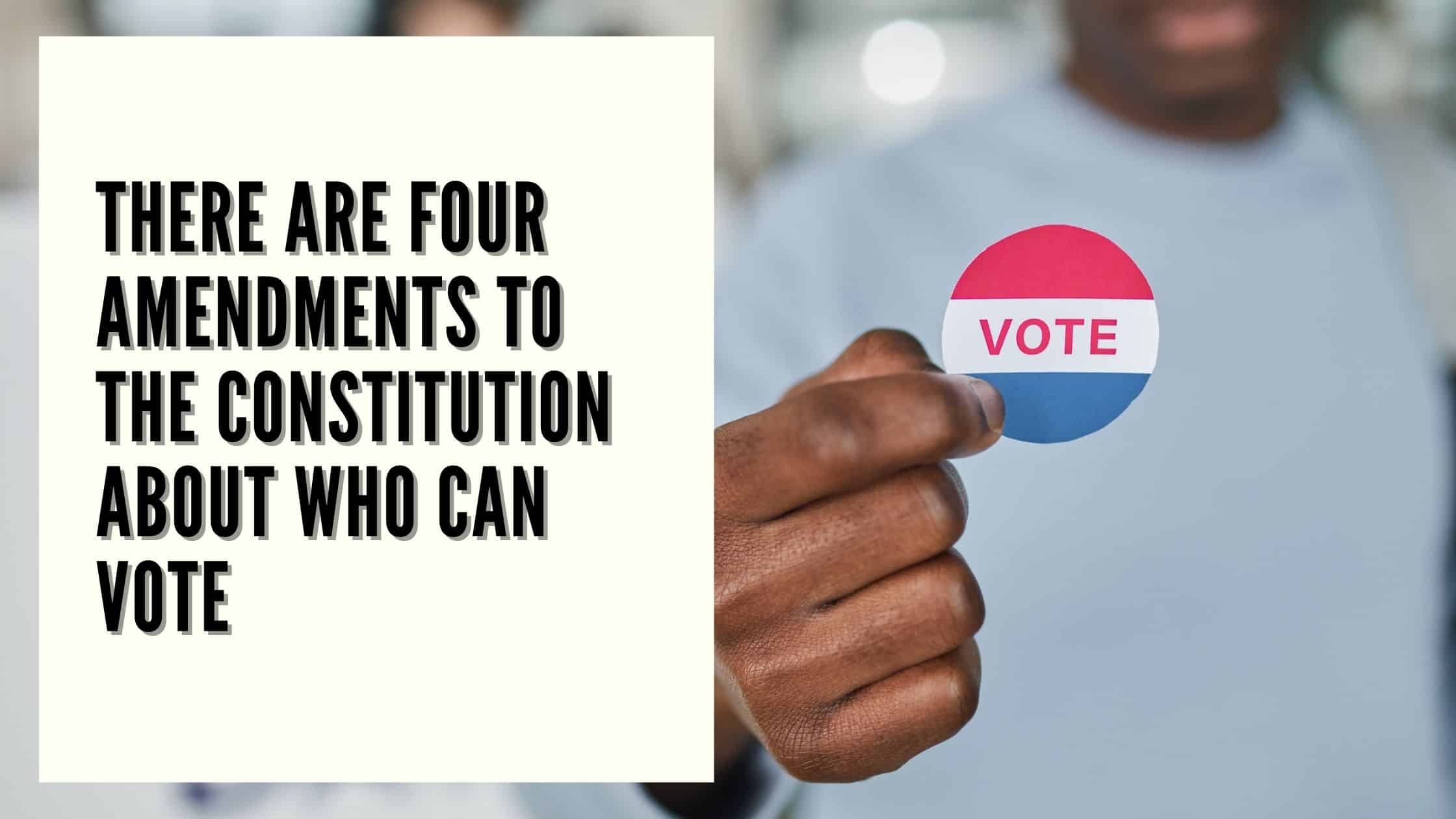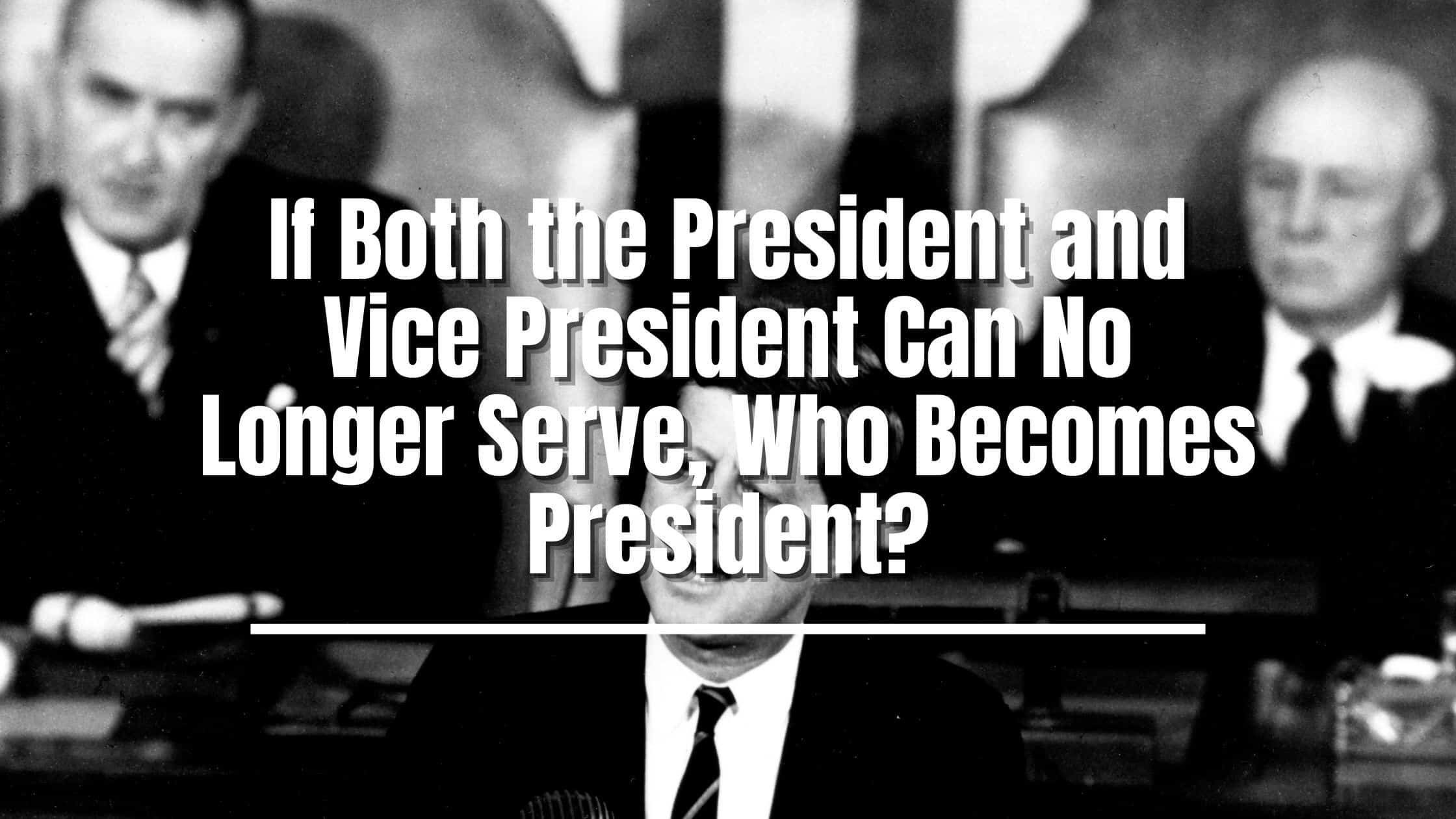Table of Contents
ToggleTo pass the US citizenship test, you will have to answer 10 of a possible 100 questions. The following question is from the USCIS test.
If the President can no longer serve, who becomes President?
Answer:
The Vice President.
The following is a full explanation of the USCIS question:
Presidential Power of Succession – Vice President
The United States Constitution is one of the oldest and most successful constitutions in world history, governing American democracy for nearly 250 years. The most powerful single individual created by the Constitution is the head of the executive branch of the government, the president. If a president is no longer able to serve, either by death or resignation, the vice president takes over the president’s duties.
In conjunction with its tendency to provide general guidelines, leaving the specific details to be worked out by Congress, the original United States Constitution does not specify a process for a president temporarily leaving office. Article II only states that if the president dies, resigns, or cannot discharge their duties as president, the vice president takes power.
If this scenario had occurred during the early years of the United States. Congress would likely have been given the responsibility for establishing the guidelines for putting a president back in power.
20th Amendment
The 20th Amendment further clarifies the order of succession if a president-elect dies before taking office, specifying that the vice president would become president. It notes that if, for some reason, the president-elect fails to qualify for the presidency or if a president isn’t chosen by the beginning of the next presidential term, the vice president will temporarily become the acting president until a president does qualify.
It also specifies that if one of the presidential candidates dies when the House of Representatives is responsible for choosing the president, they may pass legislation for determining the process for selecting the next president.
25th Amendment
The 25th Amendment provides a detailed process for how a president can temporarily or permanently resign from office while outlining the methods for a president returning to power after temporarily resigning. The president must submit a written declaration to the president pro tempore of the Senate and speaker of the House of Representatives that they cannot perform their duties. The vice president then becomes the acting president for the duration that the president is unable to perform their duties.
The amendment also specifies the process for a president temporarily being unable to perform their duties without prior notice, as in the case of a debilitation medical event or assassination attempt. In this scenario, the vice president and a majority of principal officers in the executive departments would need to submit a written declaration to the president pro tempore of the Senate and speaker of the House of Representatives that the president cannot perform their duties. Under the 25th Amendment, Congress has the authority to assign this responsibility to a body of individuals other than the principal officers of the executive departments.
The 25th Amendment delineates that a president can regain power if they submit a written declaration to the president pro tempore of the Senate and speaker of the House of Representatives that they can resume their duties. However, suppose the vice president and majority of principal officers of the executive departments submit a written declaration within four days of the president’s written declaration that the president remains unable perform their duties. In that case, Congress will decides the issue. Congress is then required to decide the matter by vote, with a two-thirds majority vote required by both houses to confirm that the president cannot resume their duties.
John Tyler
John Tyler was the first vice president to take over the duties of president during their term of office, replacing William Henry Harrison. After taking office on March 4, 1841, Harrison served just 32 days before contracting pneumonia and dying.
John Tyler was an ineffective president, constantly battling with members of his own party, the Whigs, who resented his opposition to much of their party platform.
Millard Fillmore
Millard Fillmore replaced Zachary Taylor, another Whig president, who died just 16 months into his presidency due to food poisoning. Taylor’s death was a significant blow to the Whig Party, who saw their second elected president die in a decade and would never quite recover from his loss.
Fillmore oversaw one of the most contentious periods of American history, as tensions over slavery were quickly tearing the nation apart.
Andrew Johnson
After the assassination of Abraham Lincoln, the first successful presidential assassination in American history, Vice President Andrew Johnson took office. Johnson is widely considered one of the worst United States presidents, an ironic designation considering he replaced one of the most highly regarded. During Reconstruction, he was unable to work with Congress and was impeached and almost removed from office.
Chester A. Arthur
Chester A. Arthur, one of the least known presidents in American history, replaced James A. Garfield, who died from wounds received during an assassination attempt. Garfield served just six and a half months from March 4, 1881, to September 19, 1881, the second shortest time served in office for a president.
Arthur’s most successful accomplishment was reforming the civil service system, mandating that many jobs be assigned based on merit and not political connections.
Theodore Roosevelt
After the death of President William McKinley, from wounds suffered as a result of an assassination attempt in 1901, Vice President Theodore Roosevelt took office. He became the youngest president in American history at 42 years of age.

Get Smarter on US News, History, and the Constitution
Join the thousands of fellow patriots who rely on our 5-minute newsletter to stay informed on the key events and trends that shaped our nation's past and continue to shape its present.
Roosevelt was a very successful president, pushing many needed workplace reforms and taking an active role in conservation, setting aside much land as national parks. After serving two terms, Roosevelt temporarily retired from public office and ran for a 3rd presidential term in the 1912 election as a 3rd party candidate but was soundly defeated.
Calvin Coolidge
Calvin Coolidge replaced Warren G. Harding, a scandal-laden president who died of a heart attack on August 2, 1923. Coolidge was a famously taciturn individual who was one of the last United States presidents to believe that the executive branch should take a more limited role in everyday governance.
After finishing Harding’s term and being elected to another full term, Coolidge declined to run again, in hindsight a monumental decision considering the failures of his replacement, Herbert Hoover.
Harry Truman
Harry Truman replaced Franklin Roosevelt on April 12, 1945, after Roosevelt’s death from an intracerebral hemorrhage. Truman was responsible for dropping the atomic bombs on Japan that ended World War 2 and was the first world leader to officially recognize Israel as a sovereign state. He famously won reelection in 1948 over Thomas Dewey, after many newspapers and media outlets had called the race for Dewey.
Lyndon Johnson
Lyndon Johnson replaced John F. Kennedy, who was assassinated on November 22, 1963, the last successful presidential assassination attempt. Johnson was responsible for creating many governmental programs, including Medicare, and passing important Civil Rights Legislation. However, his most enduring legacy was the Vietnam War, which dramatically escalated under his administration.
Gerald Ford
After the resignation of Richard Nixon, Gerald Ford, who had only been vice president for about nine months, took office. Ford pardoned Nixon and was able to provide necessary stability to the presidency after the departure of Nixon. Ford was the only president to never be elected to the executive branch, having been appointed by Nixon after the resignation of Vice President Spiro Agnew.











